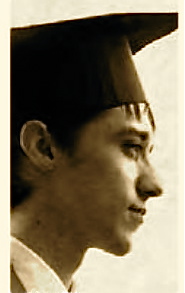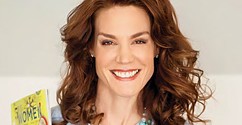 Perspectives from a Mother and College-Bound Son
Perspectives from a Mother and College-Bound Son
Download this article and more in our August/September issue (VOL 3 – NO 4) HERE!
By Tina Frank
My son will launch off to college in a year; I cannot begin to describe what a difficult transition this is for our family. I am secretly jealous of those parents of confident high school seniors regarding their post high school plans. It pains me to watch my son—who has had little difficulty with school decisions in the past—hit this “college decision wall.”
Bringing up the college topic with my son has been quite humbling for me. It usually starts with me asking him if he has some ideas about where he would like to go to college and what he would like to do there. He usually responds by saying, “I do not know.” And the conversation ends without further discussion. He is not rude, but it is quite clear that he has nothing more to say on this topic. My son is a talented writer, and he did write about college. He shared this with me and gave me permission to share it with you.
My son writes,
At the age of 17, I have not made decisions that constitute “big decisions” in the grand scheme of life. Deciding on a college, for me, has been unnerving because of the weight this particular choice carries as well as my inexperience with it all. I believe it’s safe to assume that most kids have never been instructed on how to apply for college or what steps they need to take in order to find the “best fit.” These lessons are not school curriculum, and being so unfamiliar with the topic leaves a lot of room for uncertainty and very real confusion. It has always been hard for me to look into the future and picture what I will be doing or where I will be. Because choosing a college depends on these things, it often leaves me feeling stuck. How do I know what college will be right for me?
For me, what is most difficult is to see my son emotionally paralyzed by so many choices at such a young age. I recently read Barry Schwartz’s Scientific American article “The Tyranny of Choice”[i] where he writes, “Logic suggests that having options allows people to select precisely what makes them happiest. But, as studies show, abundant choice often makes for misery.” I could not agree more with Schwartz. And I feel my son is experiencing this misery on his journey to find the right college.
Regarding well-being, Schwartz distinguishes between two types of people: “maximizers” (those who always aim to make the best possible choice) and “satisficers” (those who aim for “good enough,” whether or not better selections might be out there). In our household, we have one of each; and my son is the maximizer. When satisficers find items that meet their standards, they stop looking. But maximizers can exert enormous effort trying to find that right “product”—or in our case, the right college. So, when reality requires maximizers to compromise—to end a search and decide on something—apprehension takes over about “what might have been.”
In the fall of 1999, The New York Times and CBS News asked teenagers to compare their experiences with those of their parents as teens. Fifty percent of children from affluent households said their lives were harder. When questioned further, these adolescents referenced high expectations—their own and their parents’. The teens talked about “too muchness”: too many activities, too many consumer choices, too much to learn. Children feel the pressure and they know “falling back” is the American nightmare. When maximizers make decisions, experience the consequences, and find they do not live up to expectations, maximizers tend to blame themselves. Maximizers have a tendency to view this as personal failure that could and should have been avoided if only they had made better choices.
Of course, the relationship between choice and well-being is complicated. Schwartz states that a life without significant choice would be unlivable, and I agree. My husband and I realize we are very fortunate that our son has so many good colleges to choose from and that we live in a country where choice is valued. We realize that the ability to choose has enormous, important, positive effects, but only to a point. For our maximizer son, as the number of choices increase, his psychological benefits begin to level off.
LESSONS
Fortunately, Schwartz has some tips that will help my son with his college decision and many other maximizers with a wide variety of decisions:
- Choose when to choose. We can decide to restrict our options when the decision is not crucial. (I continue to remind my son, “This is not life and death.”)
- Learn to accept good enough. Settle for the choice that meets your core requirements rather than searching for the elusive best. Then stop thinking about it.
- Don’t worry about what you are missing. Do not ruminate about the attractive features of the options you rejected. Teach yourself to focus on the positive parts of the selection you chose.
- Control your expectations. “Don’t expect too much, and you won’t be disappointed” is a cliché; however, that advice can be helpful if you want to be more satisfied with your decision.
As a mom, here are my tips: Don’t keep asking your teenager the same question, and read (or re-read) Audrey Penn’s book The Kissing Hand—“for any child who confronts a difficult situation, and for the child within each of us who sometimes needs reassurance.” Our children are never too old.
[i] http://www.biopsychiatry.com/happiness/choice.html
Image credit: Aless (used under license from Shutterstock.com)
 Chippewa Valley 5ive for Women The Chippewa Valley’s Premier Magazine for Women!
Chippewa Valley 5ive for Women The Chippewa Valley’s Premier Magazine for Women!









